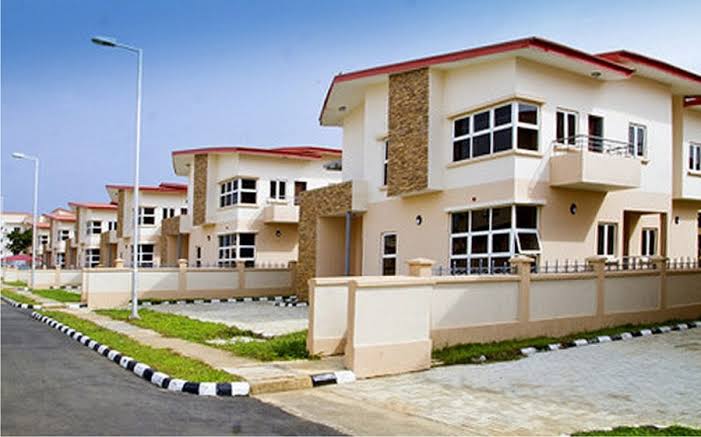Achieving homeownership is a significant milestone for many young Nigerian professionals, whether they’re establishing careers locally or living abroad. However, the financial path to owning a home isn’t always easy. With high property prices and limited savings, most people need a mortgage to help turn their dreams into reality. Fortunately, with the right approach and understanding of the mortgage landscape in Nigeria, young professionals can secure deals that align with their budgets and financial goals.
Why Do Many People View Mortgages as the Key to Property Ownership in Nigeria?
A mortgage is a type of loan specifically for purchasing property. Instead of paying the full amount upfront, a mortgage allows you to borrow a large portion of the cost from a financial institution and pay it off in installments over time. In Nigeria, typical mortgage terms range from 15 to 30 years, making it easier for young professionals to manage monthly payments and grow their property investment without straining their finances.
Mortgages are crucial not only because they make homeownership more accessible but also because they provide a structured, long-term path to building wealth through real estate. By spreading the payments over an extended period, young professionals can enjoy financial stability while owning property.
Types of Mortgage Institutions Available in Nigeria
When choosing a mortgage, understanding the types of institutions offering these loans in Nigeria can help you pick one that best aligns with your financial needs:
- Primary Mortgage Institutions (PMIs): PMIs are banks or financial institutions specializing in mortgage loans. They typically offer competitive terms and focus solely on property loans. These institutions can operate either nationally or regionally. For instance:
- National PMIs can offer loans across the entire country.
- State-specific PMIs are restricted to certain regions, such as Lagos Building and Investment or Jigawa Savings and Loans.
- Commercial Banks: Many commercial banks in Nigeria, like Union Bank and UBA, provide mortgage services alongside other banking options. These institutions generally cater to a broader audience and often have flexible mortgage solutions. Since commercial banks manage a wide range of financial services, they may offer loyalty discounts or bundle options if you have existing accounts.
- Government-Supported Mortgage Options: The Federal Mortgage Bank of Nigeria (FMBN) plays a significant role in Nigeria’s mortgage sector by providing affordable mortgage options through the National Housing Fund (NHF). This government-backed program is particularly beneficial for young Nigerians working in the formal sector and diaspora, offering lower interest rates and a structured repayment plan.
Essential Tips for Securing the Best Mortgage Deal in Nigeria
With a solid understanding of the mortgage providers available, the next step is identifying the strategies that can help you secure the best terms for your mortgage:
- Evaluate Interest Rates Carefully: Interest rates can vary significantly among different institutions. While FMBN loans through the NHF program offer rates as low as 6%, private mortgage institutions may charge between 15% and 25%, depending on market conditions. Comparing these rates and understanding how they will affect your monthly payments is essential to finding the most affordable option.
- Check for Special Mortgage Offers for Nigerians Abroad: Many banks provide tailored mortgage packages for Nigerians living in the diaspora, with incentives such as longer loan tenures, lower initial down payments, and flexibility in foreign currency repayment options. If you’re abroad, look for these tailored programs, which may offer better deals than standard mortgages.
- Research Loan Terms and Repayment Options: Different banks offer various loan terms. Some may have fixed-rate mortgages, where interest remains the same over time, while others may have adjustable-rate mortgages, where rates fluctuate. Knowing how each option affects your repayment schedule can help you make an informed decision.
- Prioritize Good Credit and Financial Stability: A positive credit history improves your chances of securing a lower interest rate. Nigerian banks typically review your income, job stability, and previous credit history, so ensuring that you have a stable income and a strong financial track record is vital.
Government Mortgage Initiatives for Young Professionals
The Nigerian government offers several initiatives aimed at boosting mortgage accessibility for young professionals. These programs, especially the NHF, reduce the financial burden of securing a home loan. By contributing a small percentage of your income to the NHF, you become eligible for FMBN-backed loans with lower interest rates and longer terms.
Additionally, the government collaborates with private banks to encourage affordable housing options, especially for low-to-middle-income earners. Taking advantage of these programs can make mortgage repayment more manageable, even for those with limited budgets.
Conclusion
Securing the best mortgage in Nigeria as a young professional or Nigerian in the diaspora doesn’t have to be overwhelming. With the right preparation—such as comparing rates, improving your credit score, and researching government programs—you can set yourself up for a mortgage deal that aligns with your financial future.




